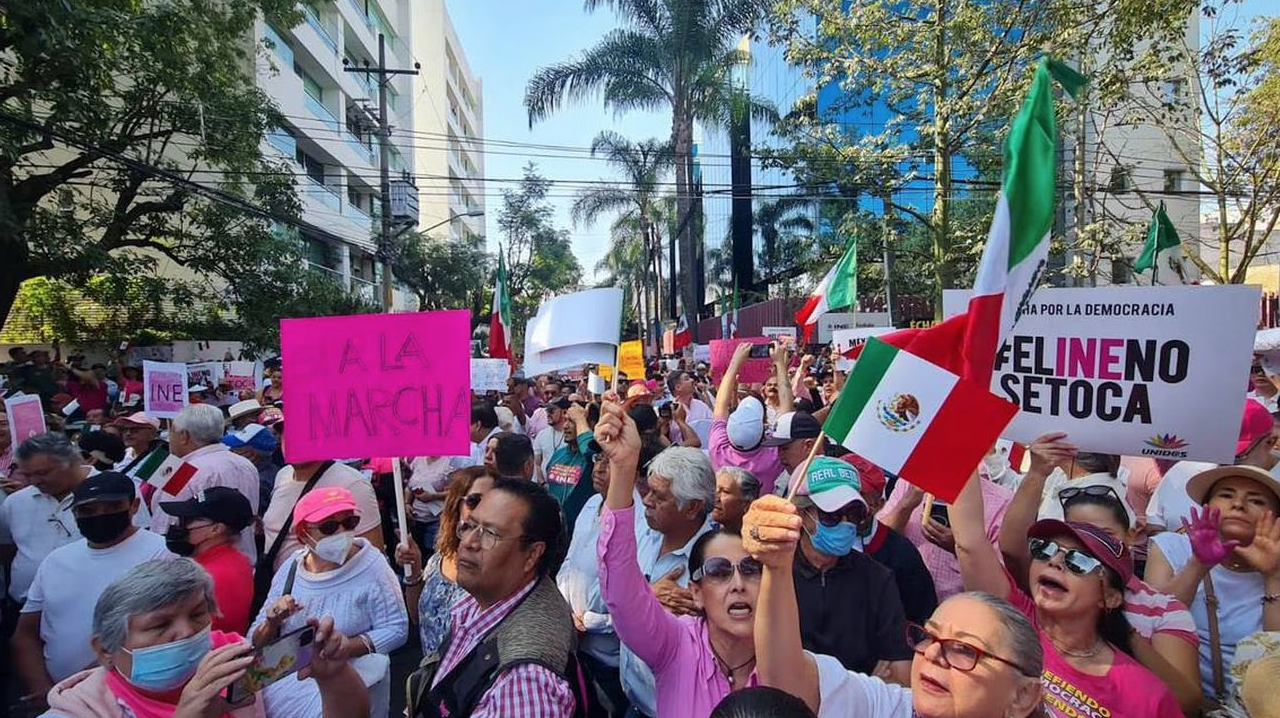On February 26, a massive demonstration was held in Mexico City’s Zócalo in favor of democracy and in defense of the autonomy of the National Electoral Institute (INE). I was present that morning and I can assure you that the crowd was heterogeneous. There is, however, one characteristic that stands out among the demonstrators: the average age was around forty years old.
One experienced analyst pointed out that this characteristic was because we, the generations over forty years old, are the last ones who really knew firsthand the authoritarianism of the Institutional Revolutionary Party (PRI). It is worth remembering that the PRI ruled Mexico uninterruptedly between 1929 and 2000, the longest uninterrupted period of government by a single party in the world: 71 years. On the contrary, the younger generations born at the end of the nineties did not know the PRI’s authoritarianism and, perhaps for this reason, the referred analyst suggests that they do not understand the risks involved in the current democratic backsliding in the country.
This hypothesis, however, clashes with data from a survey conducted by RIWI Corp. (Real-Time Interactive World-Wide Intelligence) before the 2018 presidential elections. This survey indicates that the political engagement of young Mexican millennials at the time was exceptionally high: 9 out of 10 young people thought it was worth voting.
According to RIWI, comparable data for young people in Japan, the United Kingdom, or France shows lower levels of engagement and was estimated at 7 out of 10. Indeed, Mexican millennials actively participated on that occasion and were crucial to the overwhelming triumph of current President Andrés Manuel López Obrador (AMLO).
The question then is: what is the real level of democratic engagement of Mexican millennials in 2023? How to explain the apparent contradiction between the qualitative data I collected in the demonstration on February 26 and the quantitative RIWI data published in 2018? In the absence of recent data, a few conjectures are possible.
The first and already mentioned is that the defense of democracy would really only matter to those of us who lived through the heyday of the PRI, while young people would find it a secondary issue. I do not mean by this that they are not interested, but that they have other priorities. The recent massive march on 8M, on International Women’s Day, which took place in Mexico City, makes it clear that justice for victims of gender crimes and substantive equality between men and women are aspects that young people demand to be prioritized in the public agenda. From this point of view, the commitment of young people would be higher, yet oriented toward their interests. Moreover, it seems normal and desirable to me: each generation finds its own motivations for collective action.
A second conjecture that occurs to me to explain the massive absence of young people in the February 26 march is that they still have sympathy for AMLO. So, in line with the reaction of the ruling party, they would have considered the march as an anti-government act, and not one to defend democracy. If this were so, which I do not know for sure, the young people would not be entirely wrong: the demonstration can also be read as a censure of the Government and its policies. It is simply one possibility among others. Certainly, in 2018 we saw that the younger generations — born after the democratic transition and without any memory of the hegemonic PRI — were particularly dissatisfied with the status quo and became less tolerant and more belligerent, just like AMLO himself.
My third hypothesis is as Neruda would say: “We, those of that time, are no longer the same”. Indeed, a rule of thumb when it comes to data collection is that public opinion can change from one day to the next. In the fast-paced world we live in, what happened five years ago is ancient history. Let’s not ignore the fact that humans are unpredictable and forgetful. In this sense, it is possible that today’s young Mexican millennials have lost the spark that motivated them in 2018. Something, by the way, completely understandable: in 2023 the winds are blowing very differently from when AMLO managed to excite broad sectors of the population with his populism. Today, what is in the air is weariness and boredom, emotions that cannot excite young people or anyone else.
Finally, a fourth conjecture that comes to mind is that young people are taking their protest to the digital world, where perhaps they find greater resonance for their messages among their contemporaries. Let’s not forget that many millennials were born when Google was a reality, and they spend many hours online, using all sorts of platforms to interact: Instagram, Snapchat, TikTok, etc. These generations have grown up in a world very different from that of the eighties and nineties, in which we grew up Generation X (whose members, by the way, were also characterized at the time as politically disaffected).
The question remains open: what is the real level of democratic commitment of Mexican millennials in 2023? Only they will be able to answer. What is certain is that their participation (or lack of) in the defense of democratic institutions and in the presidential elections of 2024 will be decisive for the life of the country. Professor Alfredo Gutierrez Gómez of the Universidad Iberoamericana in Mexico City said: “When young people and women go out to vote, the government loses”. We will see.
*Translated from Spanish by Janaína Ruviaro da Silva












